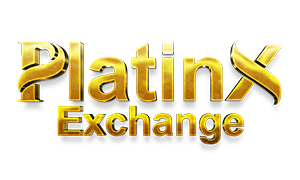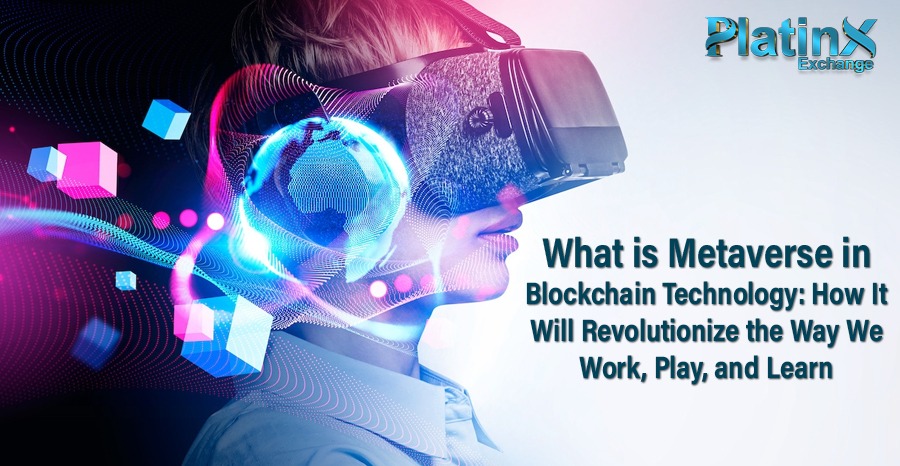Imagine a virtual world where you can interact with anyone, anywhere, anytime. A world where you can create, own, and exchange digital assets and data without intermediaries. A world where you can experience different realities and possibilities through your avatar.
This is the metaverse, a term coined by science fiction author Neal Stephenson in his 1992 novel Snow Crash. The metaverse is a shared virtual world where physical and digital realities are connected and users can interact with each other and the environment through avatars.
But how can the metaverse in blockchain technology become a reality? The answer is blockchain technology. Blockchain technology is a distributed ledger system that records transactions and data in a secure, transparent, and immutable way. Blockchain technology enables the metaverse by providing a decentralized, transparent, and secure platform for creating, owning, and exchanging digital assets and data.
There are already many blockchain-based metaverse projects that are developing and expanding the virtual world. Some examples are Decentraland, Sandbox, and CryptoVoxels. These projects allow users to create and explore various virtual worlds, genres, and themes, as well as participate in interactive and social games and activities.
But the metaverse is not just a game. It is a new paradigm that will transform various aspects of our lives, such as work, education, entertainment, and socialization. In this article, we will explore how the metaverse in blockchain technology will revolutionize the way we work, play, and learn.
How the Metaverse Will Change the Way We Work?
The metaverse will offer new opportunities and challenges for remote work, collaboration, and innovation. The metaverse will enable workers to access and create virtual offices, meeting rooms, and co-working spaces, as well as use immersive tools and devices to enhance their productivity and creativity.
For example, imagine working in a virtual office that is customized to your preferences and needs. You can choose the location, design, and furniture of your office, as well as the ambient sounds and lighting. You can also invite your colleagues and clients to join you in your virtual office, regardless of their physical location. You can communicate with them through voice, text, or gestures, as well as share documents, presentations, and screens. You can also use virtual reality (VR) or augmented reality (AR) devices to access and manipulate 3D models, data, and simulations.
The metaverse will also pose ethical, legal, and security issues for workers, employers, and regulators. For instance, how will data privacy, identity verification, intellectual property rights, and cyberattacks be handled in the metaverse? How will labor laws, contracts, and taxes be applied to the metaverse? How will workers’ rights, responsibilities, and well-being be protected and promoted in the metaverse?
These questions need to be addressed and answered as the metaverse becomes more prevalent and influential in the future of work.
How the Metaverse Will Change the Way We Play?
The metaverse will offer new forms and levels of entertainment, gaming, and leisure. The metaverse will enable users to create and explore various virtual worlds, genres, and themes, as well as participate in interactive and social games and activities.
For example, imagine playing in a virtual world based on your favorite movie, book, or game. You can choose the character, plot, and setting of your adventure, as well as the level of difficulty and realism. You can also invite your friends and other players to join you in your adventure or compete with them in different challenges and quests. You can also use VR or AR devices to enhance your immersion and enjoyment.
The metaverse will also create new economic and cultural opportunities and challenges for users, developers, and platforms. For instance, how will the metaverse enable users to create, own, and exchange digital assets and currencies, such as land, art, music, and NFTs? How will the metaverse foster community, governance, and diversity among users, developers, and platforms? How will the metaverse influence and be influenced by the culture, values, and norms of the physical world?
These are some of the issues that need to be explored and resolved as the metaverse becomes more popular and impactful in the future of entertainment.
How the Metaverse Will Change the Way We Learn?
The metaverse will offer new modes and methods of education, learning, and skill development. The metaverse will enable learners and educators to access and create virtual classrooms, libraries, and laboratories, as well as use immersive and adaptive technologies to enhance their learning outcomes and experiences.
For example, imagine learning in a virtual classroom that is tailored to your interests, goals, and abilities. You can choose the subject, topic, and pace of your learning, as well as the style and feedback of your teacher. You can also interact with other learners and educators from different backgrounds and perspectives, as well as access and create various learning resources and materials. You can also use VR or AR devices to visualize and experiment with complex concepts, phenomena, and scenarios.
The metaverse will also require new competencies and literacies for learners and educators. For instance, how will the metaverse develop and demand digital citizenship, critical thinking, and creativity skills from learners and educators? How will the metaverse support and challenge personalized, collaborative, and lifelong learning for learners and educators? How will the metaverse measure and evaluate the quality and impact of learning for learners and educators?
These questions need to be considered and answered as the metaverse becomes more relevant and influential in the future of education.
FAQs On The Metaverse in Blockchain Technology
What are the benefits of blockchain technology for the metaverse?
Blockchain technology provides many benefits for the metaverse, such as:
- Decentralization: Blockchain technology enables the metaverse to operate without a central authority or intermediary, giving users more control and ownership over their digital assets and data.
- Transparency: Blockchain technology enables the metaverse to record and verify transactions and data in a public and immutable way, ensuring trust and accountability among users and platforms.
- Security: Blockchain technology enables the metaverse to protect users and platforms from fraud, hacking, and censorship, by using cryptography and consensus mechanisms.
- Innovation: Blockchain technology enables the metaverse to foster innovation and creativity, by allowing users and developers to create and experiment with various virtual worlds, genres, and themes, as well as participate in interactive and social games and activities.
What are the challenges of a metaverse in Blockchain Technology?
Blockchain technology also poses some challenges for the metaverse, such as:
- Scalability: Blockchain technology faces limitations in terms of speed, capacity, and cost, which may affect the performance and user experience of the metaverse, especially as it grows and becomes more complex and diverse.
- Interoperability: Blockchain technology faces difficulties in terms of compatibility and integration, which may affect the accessibility and usability of the metaverse, especially across different platforms and devices.
- Regulation: Blockchain technology faces uncertainties and complexities in terms of legal and ethical frameworks, which may affect the governance and compliance of the metaverse, especially regarding data privacy, identity verification, intellectual property rights, and taxation.
How can I access and participate in the metaverse?
There are different ways to access and participate in the metaverse, depending on your preferences and goals. Some of the common ways are:
- Web browsers: You can use web browsers to access and explore various metaverse platforms and projects, such as Decentraland, Sandbox, and CryptoVoxels, by using their web addresses or domain names.
- Mobile apps: You can use mobile apps to access and interact with various metaverse platforms and projects, such as Axie Infinity, Somnium Space, and SuperWorld, by downloading and installing them on your smartphone or tablet.
- VR/AR devices: You can use VR/AR devices to access and immerse yourself in various metaverse platforms and projects, such as Oculus, HTC Vive, and Microsoft HoloLens, by connecting and wearing them on your head and hands.
To participate in the metaverse, you will also need some digital assets and currencies, such as NFTs and cryptocurrencies, which you can create, own, and exchange in the metaverse. To do so, you will need some tools and services, such as:
- Digital wallets: You can use digital wallets to store and manage your digital assets and currencies, such as MetaMask, Trust Wallet, and Coinbase Wallet, by creating and securing your accounts and keys.
- NFT marketplaces: You can use NFT marketplaces to buy and sell your digital assets, such as OpenSea, Rarible, and Nifty Gateway, by browsing and bidding on various collections and items.
- Crypto exchanges: You can use crypto exchanges to buy and sell your digital currencies, such as Binance, Coinbase, and Kraken, by trading and transferring various coins and tokens.
Conclusion
The metaverse in blockchain technology is a new frontier that will revolutionize the way we work, play, and learn. The metaverse will offer new opportunities and challenges for individuals, organizations, and society, as well as new benefits and risks. The metaverse will also require new competencies and literacies, as well as new ethical, legal, and security frameworks.
Therefore, it is important to be aware and prepared for the metaverse, as well as to participate and contribute to its development and governance. The metaverse is not just a game. It is a new reality that will shape and be shaped by us.

